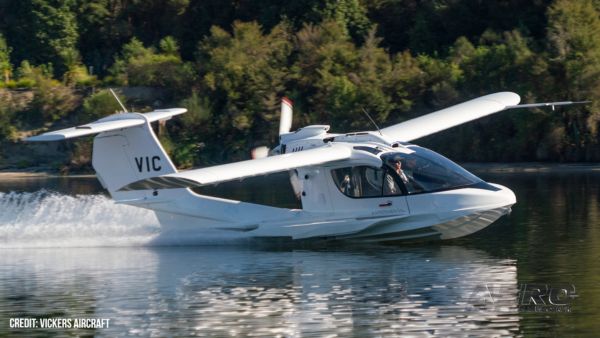New Rules Go Into Effect July 15
Air travel is essential to Canada's economic growth and prosperity. Canadians, tourists and businesses all benefit from a safe, efficient and more transparent air industry. Buying tickets for air travel can be a big expense for Canadian families. When Canadians buy an airline ticket, they expect airlines to meet their obligations and deserve to be treated fairly.

The Honourable Marc Garneau, Minister of Transport (pictured), has announced that Canadians will begin to benefit from new Air Passenger Protection Regulations starting on July 15, 2019. The Canadian Transportation Agency's final regulations are available now on their website.
The Transportation Modernization Act, which received Royal Assent in May 2018, mandated the Agency to develop regulations for air travellers that would be clear, consistent, transparent and fair. After months of public and stakeholder consultations, Canadians will soon be covered by robust new regulations that apply to all air carriers flying to, from and within Canada. These new regulations will require air carriers to proactively offer standards of treatment. Additionally, in some cases, carriers will be required to issue compensation to passengers within strict timelines. Passengers will not need to first complain to the Canadian Transportation Agency; instead, recourse is first dealt directly with the airline. Air carriers will be required to follow these regulations and could face fines of up to $25,000 per incident of non-compliance.
Following input received on the draft regulations, a phased-in approach will ensure air carriers have time to adjust to the new regulations. Requirements related to communication, tarmac delays, denied boarding, lost and damaged luggage, and the transportation of musical instruments will come into force on July 15, 2019. The more complex requirements related to flight delays and cancellations will come into force on December 15, 2019. The new regulations also take into account the realities of small and northern air carriers, as well as ultra-low cost carriers, with requirements adjusted accordingly.
"Our goal was to provide a world-leading approach to air passenger rights that would be predictable and fair for passengers, while ensuring our air carriers remain strong and competitive," said The Honorable Marc Garneau, Minister of Transport. After a long and thorough consultation process, I am proud to say these new regulations achieve that balance and will give air travellers the rights and treatment they pay for and deserve."
Beginning July 15, 2019, airlines will have to:
- communicate to passengers in a simple, clear way information on their rights and recourses and regular updates in the event of flight delays and cancellations;
- provide compensation of up to $2,400 for bumping a passenger for reasons within their control;
- ensure passengers receive standards of treatment during all tarmac delays and allow them to leave the airplane, when it's safe to do so, if a tarmac delay lasts for over three hours and there's no prospect of an imminent take-off;
- provide compensation for lost or damaged baggage of up to $2,100 and a refund of any baggage fees; and
- set clear policies for transporting musical instruments.
Beginning December 15, 2019, airlines will have to:
- provide compensation of up to $1,000 for flight delays and cancellations within an airline's control that are not safety-related;
- rebook or refund passengers when flights are delayed, including, in some cases, using a competing airline to get passengers to their destination;
- provide food, drink and accommodation when passengers' flights are delayed; and
- facilitate the seating of children under 14 years in close proximity to an accompanying adult, at no extra charge.
"The Air Passenger Protection Regulations establish a clear, consistent set of minimum airline obligations towards passengers if, for example, their flight is delayed or cancelled, they're bumped from an overbooked flight, they sit on a plane during a tarmac delay, or their bag is lost or damaged," said Scott Streiner, Chair and CEO of the Canadian Transportation Agency. "Thousands of Canadians participated in the consultations that helped shape these new rules. We're grateful for their input, and confident that these groundbreaking regulations will help ensure passengers are treated fairly if their air travel doesn't go smoothly."
(Source: Transport Canada and Canadian Transportation Agency news releases. Image from file)
 Airborne 08.29.25: G800 Delivery, Alaska F-35 Crash, USCG-RCAF Medevac
Airborne 08.29.25: G800 Delivery, Alaska F-35 Crash, USCG-RCAF Medevac Aero-News: Quote of the Day (08.30.25)
Aero-News: Quote of the Day (08.30.25) ANN's Daily Aero-Term (08.30.25): Low Approach
ANN's Daily Aero-Term (08.30.25): Low Approach ANN's Daily Aero-Linx (08.30.25)
ANN's Daily Aero-Linx (08.30.25) NTSB Final Report: Excalibur Excalibur
NTSB Final Report: Excalibur Excalibur



